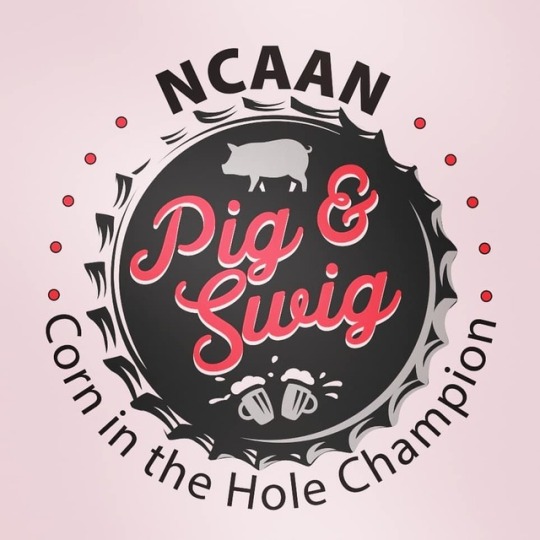#weworkforhealth
Photo

Hungry? Coming up is Pig & Swig with @weworkforhealth_us benefitting @ncaidsaction on Sunday! We'll serve up a fantastic feast, swell swig provided @brewerybhavana, plus a Corn in the Hole Championship! Good eats provided by @foodexperiencecatering, @thebakerybym with our friends at @urbanacatering pitching in to make it a great day! #ncbbq #bbq #pig #swig #janetcowell #ncaan #weworkforhealth #raleigh #ncgov #northcarolina #raffle #activategood #aidswalk #leahdevlin #mjclsrk #shoplocalraleigh (at Raleigh, North Carolina) https://www.instagram.com/p/B2iGEbHH3N4/?igshid=1iulhvfpsolza
#ncbbq#bbq#pig#swig#janetcowell#ncaan#weworkforhealth#raleigh#ncgov#northcarolina#raffle#activategood#aidswalk#leahdevlin#mjclsrk#shoplocalraleigh
0 notes
Text
We Work For Health Summit 2015
On July 15-16, life sciences companies, along with business and community partners, gathered in Washington, D.C., for the annual We Work for Health Summit. This two-day event was held to share best practices and discuss life science priorities with members of Congress and staff.
As We Work for Health representatives, our mission is to make sure our communities and legislators understand the important economic and social contributions the life sciences industry makes in Pennsylvania. This year along with our partners Pennsylvania Bio and Community Liver Alliance, we met with seven offices from our Congressional delegation: Senators Bob Casey and Pat Toomey and Congressmen Charlie Dent, Pat Meehan, Mike Kelly, Keith Rothfus and Ryan Costello.
Pennsylvania is home to 2,309 establishments in the life sciences industry, 727 of which are research and development companies formed since 2008. As of 2013, the state has 11,543 total vendor relationships and over $8.7 million in total vendor spending. It is clear that Pennsylvania is a hub for innovation.
While the debate about healthcare is constantly forming, a handful of issues are taking center stage in the legislative conversation this year:
Patent Reform: Patents support high-value, high-wage jobs in IP intensive industries like the biopharmaceutical sector, and strong patent rights help recoup an average investment of $2.6 billion over 10-15 years for research and development. The "Innovation Act" which seeks to thwart "patent trolls" is a good idea in concept; however, the bill contains loopholes that make it difficult for legitimate patent holders to defend their inventions in court against abusers of the inter partes review (IPR) process. This is bad for future medical innovation.
Simply put, bioscience investors need stability in their return on investment (ROI), otherwise we’ll see a reduction in people willing to invest and, thus, fewer life-saving cures (such as the pipelined treatment for Hepatitis C with a 95% cure rate).
Cost vs. Value: Prescription drugs account for only 10% of overall health costs and have saved the U.S. healthcare system $1.5 trillion in 10 years. Any discussion of prescription drugs needs to take into account the value that new, innovative medicines provide to patients, society, and the U.S. healthcare system as a whole.
Trans Pacific Partnership: The TPP deal could be finalized in the next couple of months, and it’s vital that any deal secures strong intellectual property rights, specifically 12 years of data protection for biologics. This cultivates innovation that ensures American economic and medical leadership globally.
Each and every one of us plays an important role in helping Americans gain and maintain access to life-saving medicines, in order to fight chronic disease and live longer, healthier lives.
“Being able to advocate for our patients is an important part of the Community Liver Alliance mission and the WWFH Summit provides that opportunity in a meaningful way,” explained Suzanna Masartis, the alliance’s executive director. “Working with collaborators such as Pennsylvania Bio, PHRMA and other diverse industry leaders allows us to be a united voice for Pennsylvania and our liver community as a whole.”
#WeWorkForHealth#Pennsylvania#WWFH#SuzannaMasartis#PennsylvaniaBio#PhRMA#chronic diesease#biologics#intellectual property#Trans Pacific Partnership#TPP#Prescription Drugs#advocacy#Hepatitis C#Patent Reform#Pat Toomey#Charlie Dent#Pat Meehan#Mike Kelly#Keith Rothfus#Ryan Costello#life sciences#biopharmaceutical#Washington D.C.
0 notes